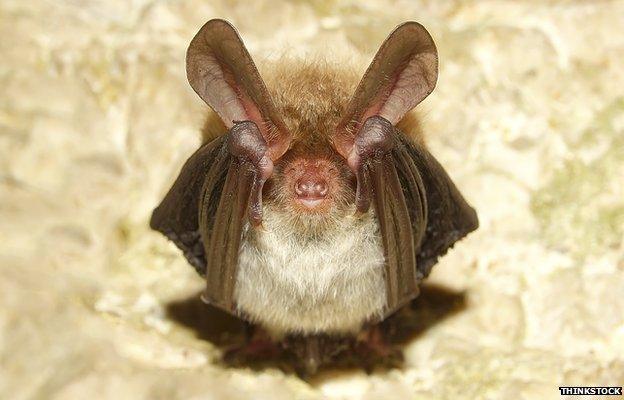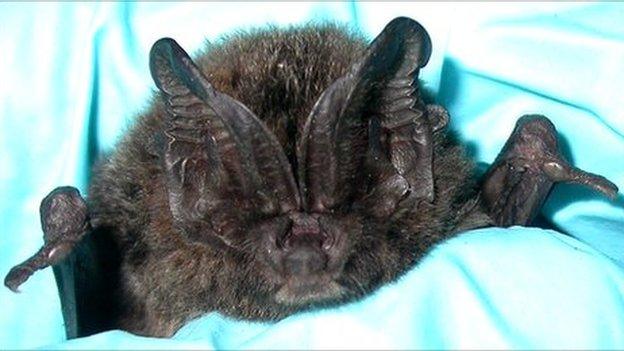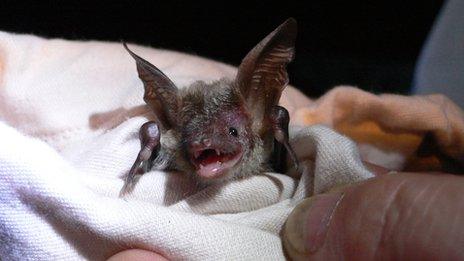Bechstein's and barbastelle bats found at Drews Pond Nature Reserve
- Published

The tree-dwelling Bechstein's bat feeds on invertebrates such as spiders and resting day-flying insects
Two rare species of bats have been discovered living on a nature reserve in Devizes, Wiltshire.
Four new sites of Bechstein's bat and two of barbastelle bats were found at Drews Pond Wood by the Wiltshire Bat Group.
Radio tracking carried out in May highlighted how the barbastelle was foraging along hedgerows and pastures on the edge of Devizes town.
New bat boxes will now be installed in the reserve to support the colonies.

The barbastelle with its distinctive pug-shaped nose feeds mainly on small moths
The Bechstein's bat, Myotis bechsteinii, has been the focus of considerable conservation action in recent years by the Bat Conservation Trust and partner county bat groups across the UK.
"The discovery of Bechstein's and barbastelle bats, along with nine other species of bat at Drews Pond Wood is of immense conservation importance," said Gareth Harris, vice county recorder for the Wiltshire Bat Group.
In the UK the Bechstein's Bat and barbastelle Bat are restricted to southern England and Wales, are UK Biodiversity Action Plan priority species and listed on the IUCN Red List as Near Threatened in Europe.
They are considered at risk across Europe and the UK due to loss of woodland habitat and fragmentation of the landscape by built development and road- and rail-building schemes.
- Published26 October 2011

- Published14 October 2010